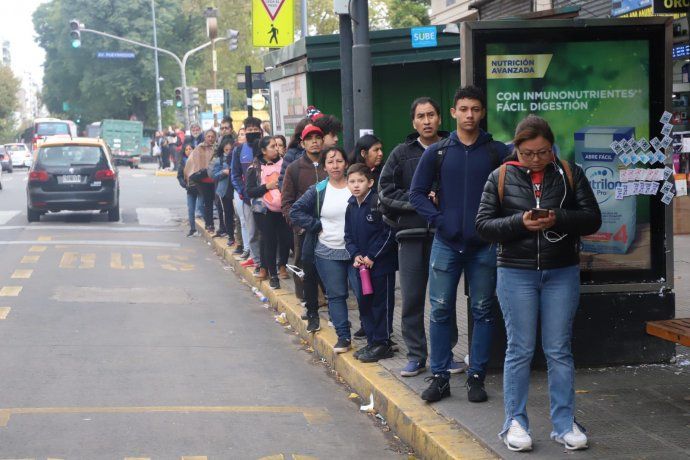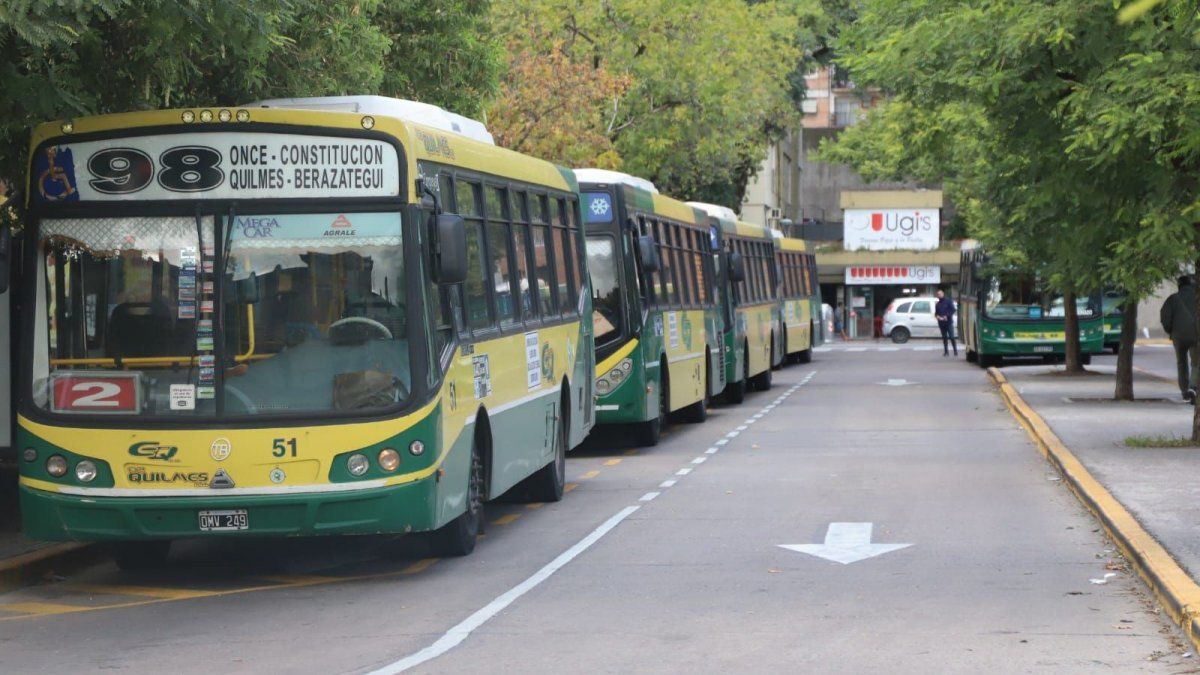Starting this Monday, a group of lines once again cut frequencies in the Buenos Aires Metropolitan Area. In addition, the companies anticipated that they will not pay a non-remunerative sum agreed with the UTA and there could be new force measures.
Starting this Monday, The bus companies in the Buenos Aires Metropolitan Area will once again cut their frequencies. From the sector they explained that “There is no organized plan or coordinated measures from the chambers”, but that due to the lack of financing they face, “several lines will take that path starting today.” Besides, There is another conflict on the horizon: the employers will not pay the non-remunerative sum of $140,000 agreed upon with the UTA because “it was not yet included in the determination of system costs.”
The content you want to access is exclusive to subscribers.
While President Javier Milei and the Minister of Economy, Luis Caputo, step on the accelerator in their plan to liquefy the income and expenses of the State, the conflict grows. In this case, in the AMBA passenger transport sector, where The Government promised to update the cost structure of companies during January, but did not comply.


Given the lack of response from the authorities, the chambers that bring together companies in the sector sent a Document Letter to Caputo last Wednesday. In the letter they urge that a new cost structure be made official this week. In that sense, they anticipated that if not, they will cut the frequencies again. According to estimates, the cost should rise from the current $600 to about $1,000.
So far there have been no responses from the Ministry of Economy, so companies began to take measures unilaterally. “Some cut frequencies, others finance themselves with the AFIP or by stopping the distribution of profits”they explained from one of the chambers, and added: “there is no organized plan or coordinated measure, the guideline that was given to the companies was that they do what they can with the money they have.”
Specifically, some lines began reducing frequencies this Monday. Which will imply that the delay between the arrival of each unit at the stops will grow and, of course, a greater accumulation of passengers. The business chambers assure that since the last cost review, they have suffered strong increases. In fuel, which went from $362 to more than $900 and also in labor costs: the basic cost of UTA drivers went from $537,000 in December to $737,000 in February. For this reason, they assure that the current situation makes the service “unsustainable.”
Collectives

Photo Ignacio Petunchi
For companies, it is indifferent whether the hole of $400 per ticket is compensated with greater disbursements from the State or with an increase in the fare paid by passengers. In any case, what they want is to improve their accounts because they say that “they no longer have the material means to sustain the frequencies.”
New conflict front
As said, the speed that the adjustment takes brings conflict. Between companies and the Government, due to the recognition of the increase in costs that could lead to greater subsidies or a new increase in the minimum rate, which today is already at $270 in the Metropolitan Area. But also between unions and employers.
In the case of transportation, a new front will open in the next few hours. Business sources told Ámbito that they will not pay the non-remunerative sum of $140,000 per worker agreed with the UTA agreed on February 2 of this year and which had an expiration date this Tuesday.
“It will not be paid because the parity was not yet included in the determination of system costs,” they explained from the sector. The union has not yet expressed itself officially, but at this time, no one rules out new forceful measures.
Source: Ambito




